Maori members of the New Zealand parliament have been urged to stand together to support the Australian outback Aborigines threatened with being evicted from their remote communities by governments. Peeni Henare, the Member for the special Maori electorate of Tāmaki Makaurau said he's not surprised with the Australian government's motives. "If aboriginal communities are ripped from their communities - and look at us Maori, we're the example of people being ripped from their communities - they'll be lost. That's what'll happen to those in Australia if the Prime Minister there goes through with it," Henare said on Maori television.
Māori politicians likened the situation to Māori having to move from the regions to the city for work. Henare said he feels for the Aboriginal people in Australia and moving them out of their communities will be detrimental for them, just as it was for the identity of many Māori who are thrust into cities, get lost among the masses and are eventually forgotten.Māori Party co-leader Marama Fox called for Māori politicians to stand together on the issue and support the Aboriginal communities affected because “unlike Māori in New Zealand [they] do not have a treaty to work with which ensures their mana isn’t lost completely.” Ms Fox said she fully supports the Aboriginal communities banding together in Australia to protest the move and that other Māori politicians should back their call.
Rosalie Kunoth Monks, a prominent Aboriginal activist who made a conscious choice to leave white society after spending ten years from 1960 as a nun in a Melbourne Anglican community, told CAAMA Aboriginal radio in Alice Springs: “The policy today is the worst in my long, long journey of trying to resist the brutal attack on my culture and on me personally as a person with another culture within Australia.” Click here for the interview (11’21”) with the respected Anmatjera/Arrente Elder.
Also on CAAMA Radio a Western Australian researcher and writer said the establishment of a
refugee camp on Matagarup Heirisson Island in Perth for displaced Aboriginal
people represents underlying issues in state affairs. Investigative journalist,
Gerry Georgatos, openly supports the refugee
camp, calling it a respite for the dispossessed and displaced
Aboriginal Australians. “Moving the self-proclaimed refugees will not solve the
problem," he said.
In a media release, Matthew Cooke, the Chairperson of the National Aboriginal Community Controlled Health Organisation (NACCHO), said: “The physical, emotional and spiritual health of Aboriginal people is tied to their connection to Country. Dispossession is one of the key reasons we have for the existing health gap between Aboriginal and other Australians.
"Time and again we see
evidence showing that when you remove Aboriginal people from their land, they
lose their sense of identity which has profound impacts on their health and wellbeing. Aboriginal
people are suiciding at alarming
rates, almost a third of Australia’s jail population is Aboriginal
and as a People we can expect to die 10-17 years younger than other Australians.
"This is primarily due to the historic dispossession of Aboriginal people from their land, generations of racism and entrenched poverty and disadvantage.” Mr Cooke said he was astonished that the federal government could talk about reconciliation and promote constitutional recognition for Aboriginal people whilst closing remote communities.
“Now we are seeing these poor policies from the past continue in Western Australia today with the closure of regional communities. It’s time to learn from the mistakes of past policies, listen to Aboriginal people and reverse this decision. It seems we are a long way off reconciliation if even our Prime Minister doesn’t know that Aboriginal people living on Country is not a ‘lifestyle choice’ but an integral part of identity and culture.
Epidemiologist and child health expert, Fiona Stanley, a former Australian of the Year, said, "Closing small indigenous communities would increase fringe populations of ‘displaced and depressed Aboriginal people around towns’, which "is likely to be extremely detrimental to their health and wellbeing and really costly for governments, both now and in the future". Glen Kelly, CEO of the South West Aboriginal Land and Sea Council, said in an interview distributed to more than 400 community-run radio stations across Australia, the news that some of WA's remote Aboriginal communities will be closed down “worries people that they will be disconnected from their ancestral land. Noongar people from South Western Australia experienced removal from their lands in the 1950s and have had to work hard to maintain connection to country and the direct link to their culture."
In a commentary in the nationally read newspaper,
The Sydney Morning Herald, the chief executive of the Northern Land Council, Joe Morrison, who is of Dagoman and Torres Strait Islander descent, wrote: “Aborigines
live in outstations to give their
families a better chance of survival. These are places ... where services are
increasingly sparse as governments retreat from fundamental obligations. But,
whatever the vicissitudes of outstation living, they're healthy out there with
potential. The evidence has been in for a long time now: Aboriginal people who
live on outstations are much healthier than those who don't. That's a fact,
Prime Minister. Real connection to country is not only culturally
sustaining, it's good for people, and what could be wrong with that?"
Michelle Dunne Breen, researcher and lecturer in journalism practice at the University of Canberra, notes at the online platform, “The Conversation”, that only the social media are adequately covering Aboriginal issues. The Conversation is a tri-national (AU, UK, US) collaboration between editors and academics.
Breen writes: “Research has
shown time and again that although it is held dear by
journalists, Australian journalism’s democratic watchdog role is severely
lacking when it comes to representing the interests and perspectives of
Indigenous Australians.
“Australia’s mainstream
news media … is not only not attempting to seek out or represent Indigenous
opinion on this matter beyond that of Noel Pearson and Warren Mundine, but it has been actively
ignoring different voices than those supporting the WA government’s plans.
“’The Australian’, which claims
to be the only newspaper that has taken Indigenous affairs coverage seriously,
has published two articles from its associate editor Chris Kenny
defending the policy and deriding any opposition to Abbott’s remarks. It has published others with criticism of Abbott’s comments and
the policy – quoting mainly Mundine and Pearson. But since 2007, digital-only
news site The Guardian Australia has provided a sharp
contrast in its coverage of Indigenous affairs, as has a relaunched New Matilda under editor Chris Graham.”
“The Hoopla”, an online platform that claims to present “news through the eyes of women” had the sardonic headline, “Why Can't Black People Live More Like White People?” “In Abbott’s inimitable style, he complained that Australians can’t keep subsidising the “lifestyle choices” of Aboriginal people. For Abbott, the rest of us True Blue Aussie Battlers shouldn’t be indulging Aboriginal people’s desire to live wherever they want.
“Clearly, living wherever
you want is for rich white people who can afford clever accountants to reap
them enormous tax benefits and government handouts.
“To call Abbott’s comments old fashioned is too cute. To call him a colonialist is too polite. To label him as flat out racist is far more accurate. Abbott has little desire to protect or promote Indigenous Australians’ culture or heritage. In the last few months alone, Abbott declared Australia to be “nothing but bush” until the English arrived, and slashed funding to Aboriginal and Torres Strait Islander legal services.
“He knows full well that the incarceration rate for Indigenous Australians is disproportionately high, that they are still dying in custody, and that infant mortality rates are some of the worst in the world. And yet, he decides to decimate the ability for advocates to help Indigenous Australians in any meaningful way. It appears that wandering around an Aboriginal community for one week once a year and getting a couple of photos taken is all our Indigenous peoples deserve.
“While Abbott’s cheerleaders will spend the next few days wringing out their hankies and declaring their leader a defender of the Closing the Gap initiative, they’ll not bother to mention what exactly Abbott thinks that gap is. To Abbott, the gap is not about health care, education, infant mortality rates and poverty.
“To our Prime Minister, the
gap is about black people refusing to behave like white people.
“If Aboriginal people just
lived like white people, sent their kids to schools to learn white history and
white language, if they moved into white housing and saw land as the commodity
that white people see it as, all of a sudden the gap would close. Abbott’s
opinions of how to “help” Indigenous Australians stems from the racist belief
that white culture is superior to black culture.
“Aboriginal people living
in remote communities have not decided to make some sort of tree change. It is
not a choice. Their ancestors were on that land thousands upon thousands of
years before our white ancestors turned up, invaded their communities,
introduced European diseases, murdered their people, stole their children and
left the rest for dead.”
The Labor opposition spokesman on Aboriginal affairs, Shayne Neumann, called Abbott’s remarks “a bone for the right wing” which indicated he “has little understanding of connection to country".
“The Guardian Australia” explains the facts
behind the outrage over Abbott's remarks and rounds up responses of Indigenous
leaders. “Groups representing people in Fitzroy Crossing and 35 surrounding
communities said they were "appalled" by the proposed closures, and
that it was the "biggest threat to our people" since the 1960s, when
the equal wage case saw Aboriginal people move off stations and into townships,
resulting in devastating social impacts."
For archived Aboriginal news go here.
More coverage:
Video of mounted police attacking Heirisson Island Tent Embassy (14/3/15)
"Radical fascist intellectually impotent and emotionally infantile"
Environmental benefits of Indigenous people living on Country
Remote Indigenous communities are vital for fragile ecosystems
No formal evaluation of costs and no consultation with the people who live there
In tune with the deep-seated logic of settler colonialism
More than a thousand protesters shut down traffic in central Melbourne
Health and Homelands: Good Value for Money?
Amnesty International Australia: Homelands
- "There’s no place like homelands”
- Meet the people of Utopia homelands
- A message from Rosalie, Alyawarr/Anmatyerr elder
- Aboriginal Peoples’ right to homelands
- 5 facts about homelands
Aboriginal culture, land, homelands, outstations
No formal evaluation of costs and no consultation with the people who live there
In tune with the deep-seated logic of settler colonialism
More than a thousand protesters shut down traffic in central Melbourne
Health and Homelands: Good Value for Money?

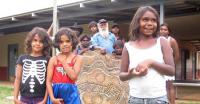
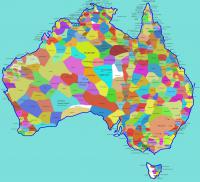
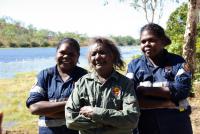
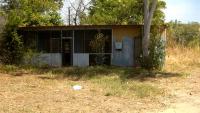
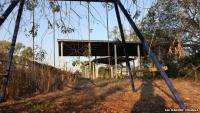
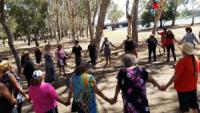
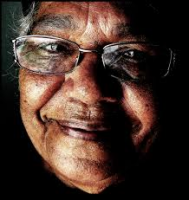
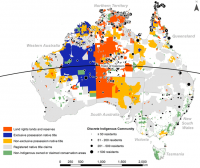
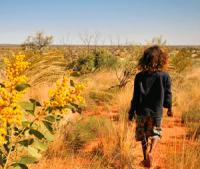
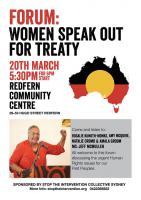
Prominent Aborigine pleads with Abbott to change course
Patrick Dodson, one of the country's most respected indigenous leaders, has issued an urgent plea to Tony Abbott to change track, warning that the fate of the referendum on recognition of the first Australians hangs in the balance.
Mr Dodson issued his plea near a sacred law ground of his Yawuru people in Broome, before privately addressing a group of young men on their responsibilities and obligations after passing the first stage of ceremony.
He called on Mr Abbott to convene a meeting of indigenous, political and industry leaders to set a new course based on engagement and end what he called the domination of "pre-Mabo thinking" in indigenous policy. It came after the Prime Minister' outraged many this week with his description of indigenous Australians who lived in remote communities as making a "lifestyle choice".
"If this was happening in any other sector of Australian society, I'm sure there would be some bringing together of the main stakeholders in the equation for some discussion about an agreed approach," Mr Dodson told Fairfax Media.
Pick up the rest of this story at http://www.smh.com.au/federal-politics/political-news/patrick-dodsons-heartfelt-plea-to-tony-abbott-change-course-on-indigenous-policy-before-its-too-late-20150314-1443jg.html.
tja warum schreibt niemand kommentare zu deinen artikeln?
danke fürs teilen!
"To our Prime Minister, the gap is about black people refusing to behave like white people."
und da stehen viele auf der seite des premiers. gerade in europa, wo integration gefeiert wird - juhu: alle sind in großstädten, die absolut gleich sind, tragen europäische kleidung, hören musik, die europäisiert wurde, essen europäisiertes essen, spielen europäische spiele, feiern europäisch mit saufgelagen, ohne gemeinschaftlichen tanz oder gesang...und halten das alles für furchtbar pluralistisch. und die ureinwohner*innen, die auf ihr land und ihre kultur bestehen und sich nicht den weißen anpassen wollen? die sind den europäsierten suspekt. schließlich sind die doch mit ihren werten ziemlich nah an: der blut-und-boden-argumentation! z.b.: verbindung mit dem land ("heimat!" schreit es aus der cosmopolitischen linken szene), auf dem die clans ("familienverbände!") seit ewigkeiten ("tradition!") mit den geistern ("religion!") in kontakt sind...und warum heißen sie die weißen nicht willkommen ("ausgrenzung!")?
leider ist dies keine überspitzung, sondern etwas, das mir in diskussionen mit glücklichen europäisierten-demokratisierten stadtlinken genau so als argument entgegenkommt. heimatgefühl ist scheiße ("man sieht doch, wozu die heimatliebe in deutschland geführt hat!", nur hat sie anderswo übrigens nicht zum massenmord geführt...), familie ist scheiße (aber die meisten landen in therapie weil das mit der scheidung doch uncool war), tradition stinkt (aber silvester feiern ist ok und veganer weihnachtsstollen verkauft sich auch gut, ganz zu schweigen von der tradition des besuchs superrevolutionärer demos, deren nutzen in keinem verhältnis zum aufwand steht), religion ist opium fürs volk heißt es bei den aufgeklärt-befreiten (statt sich mit der irrationalität-religiosität von wissenschaft und humanismus zu beschäftigen, bisschen popper als klolektüre und dann mal zu gramsci, siehe z.b. die grundrisse zum thema "kritik der religionskritik" - und die klolektüre "antifa und fußball fortsetzungsband IV: antifa-ultras in der östlichen mongolei, mit aktualisiertem kapitel zur repression") und AUSGRENZUNG GEHT JA MAL GAR NICHT! es müssen alle integriert werden! (außer die, die sexistische sprüche auf parties machen) denn pluralismus ist super (es wäre ja auch völlig ok wenn der eine straßenzug kapitalistisch ist und der nächste ist befreit, denn alle haben ein recht auf die verwirklichung ihrer träume).
ich kann mir diese polemik nicht verkneifen, denn das thema indigene/ureinwohner*innen und die zerstörung ihres landes (z.b. durch bauxitabbau in indien vergiftung und abtragung des bodens) oder ihre vertreibung von dem land (dafür dürfen sie dann zur schule gehen und englisch lernen und in ein wasserklo kacken und sie bekommen auch glühbirnen! und eine straße, um die kaputten glühbirnen zur mülldeponie zu fahren und neue ins dorf zu bringen...tja und wenn die straße schon mal da ist, können auch waren und individualtouristen die gleich mitbenutzen!) sind in der deutschen linken KAUM EIN THEMA weil sich kaum jemand dafür interessiert und auch kaum jemand zuhört, wenn jemand darüber erzählt/schreibt, was in manchen erdteilen, wo es keine punkkonzerte und besetzten häuser gibt, abgeht.
das ist leider eher was für die eine-welt-laden-gutmenschen, nächstenliebe-christen und manchmal auch für die radikaleren ökos. LEIDER!
Why? Out of sight, out of mind
Australia is too far away to give it any thought. It presents such a smiling face to the world that people just don't believe that such genocidal crimes are being perpetrated there. I wish foreign visitors would seek out Aboriginal people, sights and activities. They would come back with fire in the belly...
Tony Abbott an international laughing stock
The rise and rise of Tony Abbott as an international laughing stock
Onions CAN taste like apples: the Tony Abbott effect
Tony Abbott's leadership safe until after federal budget, MPs agree
Ten times politicians ate something weirder than Tony Abbott's raw onion
Outstations in South Australia fear similar fate
Outstations in South Australia fear their fate will be similar to those in the West
Will You Help to Prevent a Crisis?
The Commonwealth’s commitment to Homelands and Outstations was surely sealed by the 1967 Referendum. How can it be then that the federal government can consider abandoning their long-held responsibilities by cutting essential funding to these especially vulnerable areas?
What is clear is that the Commonwealth knows full well that the consequences of the cuts will fall with brute force onto Aboriginal communities least able to defend themselves. Such behaviour is contemptible.
It is quite clear that state governments do not have the resources to simply replace Federal funding. Mr. Barnett in Western Australia has responded by indicating that he will close up to 150 remote Aboriginal communities by simply cutting off their essential services – water, power etc. Arrangements with the South Australia government are still to be determined but at this stage the outstations fear their fate will be similar to those in the West.
Please click here for more information.
Joe Morrison's comment in The Age: Remote communities aren't a utopian lifestyle choice but they are good for our people
Jon Altman: Homelands under the hammer, again, from the aspiring PM for indigenous policy
More on the same theme
Police move in but fail to snuff out sacred fire at Matagarup
Petition: Stop displacing Indigenous Australians by the closure of Indigenous communities
Call for donatioins to Matargarup (Perth) First Nations refugee camp
We have a right to be on Matagarup: Noongar embassy
WA uses mounted police and dogs to seize tents and valuables at Refugee Camp
Indigenous tent Embassy will continue despite eviction by police
Mounted police join effort to dismantle Heirisson Island protest
'Refugee Camp' For Aboriginal People Moved Off Remote Communities Ordered To Close
Homelands under the hammer, again, from the aspiring PM for indigenous policy
'Everyone hurting inside' in remote indigenous communities
Forced to dance to the White Man’s song - Australia, steeped in racism
Constitution premised on the genocide of Indigenous people
Constitution premised on the genocide of Indigenous people
Articles by Kammileroi woman Natalie Cromb